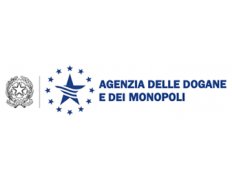Share
Print

The Customs Agency, is a non-economic public body established by Legislative Decree n° 300 dated 30th July 1999.
As a customs authority, ensuring full compliance with the community legislation, it carries out control activities, assessment and verification with regards to goods circulation and to internal taxation related to international exchange guaranteeing the collection of 15,2 billion euro (VAT and duties). It also verifies and controls exchange, production and consumption of products and natural resources subject to excise duties, collecting every year in this sector around 33,6 billion euro. Furthermore, it puts into place prevention activities and fights against crimes not involving taxes, such as illegal trade of counterfeit products or of products not complying with health and safety legislation, arms, drugs, items of cultural heritage illicit trafficking of waste, as well as international trade of endangered animal and plant species, protected by Washington Convention. It collects statistical data in order to prepare the trade balance.
The mission outlined in the community and national legislation is quite complex operationwise because of the need to carry out controls on trade in real time For this purpose, the Agency adopted advanced management tools, developing a control system on the most sophisticated risk analysis techniques, which with efficiency and effectiveness allow to head-off whatever delay may affect competitiveness of national companies. The electronic Customs clearance service integrating control activities, processes on average an operation every 1.5 seconds.
As of the 1st of December 2012 in compliance with Decree Law n° 6 of July 2012 n. 95 converted into Law n. 135 dated 7th August 2012, the customs Agency merged with the Independent Administration of the State Monopolies taking the new name of Customs and Monopolies Agency.
The Agency set up the activities needed to carry out the actual integration between the two pre-existing structures. At the moment the organization is articulated into two areas: Customs and Monopolies.
